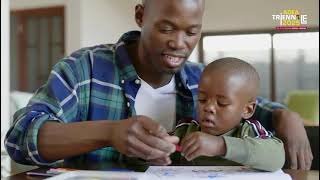Sub-Theme 2
Improving Foundational Learning – Progress and Challenges Since FLEX 2024
The year 2024 marked a pivotal moment for foundational learning in Africa, with two landmark pronouncements elevating it to the top of the continent’s development agenda. First, at the Africa Foundational Learning Exchange (FLEX 2024) held in Kigali, Rwanda, in November, African Ministers of Education committed to ending learning poverty by 2035 (ADEA, 2025). The Ministers also endorsed the African Union’s (AU) call for a “Decade of Education”, aimed at addressing the continent’s deepening learning crisis. This was followed by a second major declaration at the AU Continental Conference on Education, Youth, and Employability, held in Mauritania in December 2024, which reaffirmed the commitment to eradicate learning poverty by 2035. The Mauritanian Declaration was subsequently endorsed at the AU Summit in February 2025.
Foundational learning – which includes early childhood education and development (ECED), literacy and numeracy skills, socio-emotional competencies, values, and well-being – has also been prioritized, spanning three of the six strategic pillars of the Continental Education Strategy for Africa (CESA 26–35).
Considering these developments, it is essential to track the implementation of the Kigali Declaration to Action, which outlined five priority actions endorsed by the Ministers:
- Enhancing regional collaboration to promote knowledge-sharing and foster innovation in foundational learning.
- Adapting, integrating, and scaling evidence-based approaches to improve foundational learning outcomes.
- Strengthening data systems, assessments, accountability, and evidence use to guide decision-making.
- Ensuring intentional and efficient use of domestic resources, with a focus on cost-effective, scalable interventions.
- Aligning and coordinating partner initiatives at the country level to avoid duplication and maximize the impact of resources.
To support this process, ADEA has collaborated with Human Capital Africa (HCA) and national technical focal points to develop a set of indicators to monitor FLEX 2024 outcomes. A meeting is scheduled for Nairobi (24-25 June) to refine the indicator framework for use by countries ahead of the Triennale.
Momentum has also built around the operationalization of the Nouakchott Declaration through the “End Learning Poverty Campaign”, which is being rolled out at the country level. The first launch took place in Zambia in April 2025, with additional launches planned for Namibia (11–12 June), Malawi (16 June), Zimbabwe (25 June), Nigeria (9 July), and Botswana (14 July). These national campaigns aim to localize foundational learning priorities and catalyze multisectoral action. A two-day validation workshop on scalable practices for ending learning poverty is scheduled for the last week of July 2025. This will be followed by a side event at PACTED 2025 in early October, focusing on the critical role of teachers in advancing foundational learning, and will set the stage for the ADEA 2025 Triennale to be held in Ghana from 29–31 October.
Efforts are underway to develop a Common African Assessment Framework for Foundational Learning, as endorsed by Ministers at their Specialised Technical Committee (STC) meeting in 2023. This framework is expected to enhance comparability, benchmarking, and targeted interventions across the continent.
To amplify these efforts, the Africa Foundational Learning Champion continues to use various platforms to raise awareness and mobilize political will. There is also a push to ensure coherent messaging around foundational learning, bringing together governments, partners, civil society, and communities under a unified vision. A recent FCDO-facilitated roundtable on foundational learning, held on 22 May 2025 on the sidelines of the Education World Forum in London, brought together Ministers from South Africa, Ghana, Zambia, Malawi, and others. They emphasized the urgent need for deeper collaboration in the face of severe fiscal constraints and competing priorities. The consensus was clear: failure is not an option. Without decisive action, Africa risks a much higher price – lost human potential, deepening inequality, and a widening global skills gap.
This sub-theme is as foundational as its name implies. The ADEA 2025 Triennale offers an important platform to assess progress since Kigali and Nouakchott, identify gaps, and accelerate collective action to end learning poverty in Africa.

